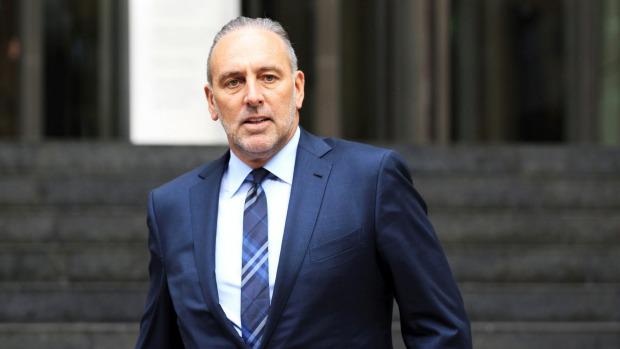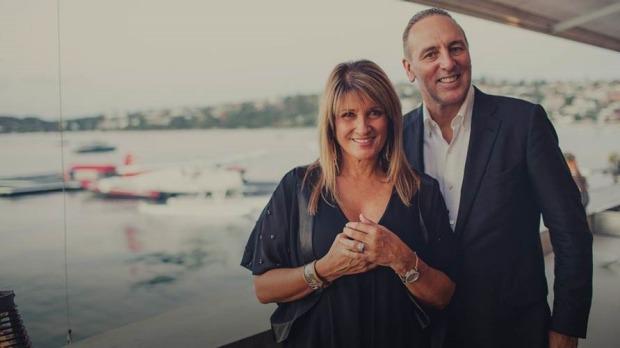|
Pastor speaks about his paedophile father
By Brian Houston
Stuff
July 5, 2015
http://www.stuff.co.nz/national/69921999/pastor-speaks-about-his-paedophile-father
 |
| Hillsong Church founder Brian Houston, whose new book confronts his father's paedophilia. |
 |
| Hillsong Church founder Brian Houston met his wife Bobbie at Papamoa Beach in 1978 before they emigrated to Australia to start their church movement. |
 |
| Justin Bieber is among celebrity supporters of the Hillsong church |
"It's not about you - it's about your father." These words introduced me to a nightmare that would change my life. I was 45 years old and what developed after that sentence was a product of someone else's past that would frame so much of my future.
It was October 1999, and I was senior pastor of Hillsong Church, which my wife Bobbie and I had started from scratch in 1983 in a humble warehouse in northwest Sydney. From that beginning it had grown to a weekly attendance of thousands, and that year we'd been asked to take over the Sydney Christian Life Centre that my parents had founded in 1977 after we emigrated from New Zealand. I was also national president of Assemblies of God, the Pentecostal church umbrella organisation overseeing more than 1100 churches.
On that spring day the general manager of Hillsong, George Aghajanian, with whom I've worked for many years, sat across from me in our weekly meeting. We moved through the agenda quickly; I thought we might wrap up early, so I could get in a quick jog. But then George looked at me and said, "There's just one more thing, Brian." He hesitated, and I sensed he had something important to tell me; the look in his eyes suggested it was not going to be good news.
"It's not about you," he said. "It's about your father." My heart pounded, and it felt as if all the blood drained from my face. George told me of a phone call to our office: the caller said he'd recently been ministering at a local church where a lady confided in him a secret she'd carried for years: "Frank Houston sexually abused my son."
Of all the things that George might have told me about my father, this could not have been further from what I'd expected to hear. In fact, I didn't even have a category for this kind of accusation. A riptide of painful emotions washed over me, wave after wave. Confusion.
Anger. Incredulity. Fear. Hurt. Betrayal.
My father, Frank Houston, had always been my hero. My earliest memories are of tent revival meetings with him in New Zealand. Entire villages of beautiful Maori people were being saved as he preached the good news of the gospel, night after night. During the day the Waiomio locals would teach my brother and me how to ride horses, and in the late afternoon we would stand just on the cusp of the river, catching eels by flicking them between our legs and on to the banks.Our new found friends would cook up our catch and introduce us to the delicacies of their culture.
My childhood was filled with memories of waving good-bye to my dad as he took off on yet another ministry trip; I remember believing that I, too, would do the same one day. So much of my motivation for wanting to serve God and build the church came from him. He had raised me, loved me, and taught me so much about the ministry. We never like thinking about the private lives of our parents, but to consider the things George was saying about my dad was unbelievable. The thought that my father, who was then in his late 70s, would commit such a heinous act as sexual abuse was crippling.
Even though these crimes had happened decades earlier, back when I was in my teens and obviously unaware, somehow deep down in my heart, I knew that I was about to find out these accusations were true. It made my stomach sick. There's not too much worse than finding out your father is a paedophile.
I learnt that this incident, which took place during a visit to Sydney by Dad in the late '60s or early' 70s - before my parents moved to Australia from New Zealand and pioneered Sydney Christian Life Centre - involved a boy under 10. I thought to myself, "This is not just immoral, it's criminal."
As I processed these thoughts, they began to overwhelm me. It felt like the worst day of my life. Little did I know how much worse the whole thing would get.
My father was overseas at the time, which gave me time to seek more information in preparation for the hardest conversation I've ever had.
Soon after his return, he came into my office for what he thought was a routine meeting. I tried to stay calm as I outlined to him the call we'd had.
As he listened, he seemed to age before my eyes.
When I'd finished talking there was a long pause, and then he began to speak, his mouth going dry.
He admitted that yes, the accusation was true.
It was my responsibility then and there to suspend him from ministry and to ask for his credentials.
I believe he left my office that day knowing that he would never preach again - and he never did. At that time, my father told me it had only happened once. I also lived with the awareness that there was someone out there hurting so much more than me - an innocent victim whose life had been changed forever.
I then spoke to the elders of Sydney Christian Life Centre, and as soon as was practically possible our national executives gathered in a boardroom.
I bluntly communicated the devastating news to everyone. I handed the chair of the meeting to someone else, then sat there as the
wise men, who had so many times before served my vision and watched my father lead, began to talk about a way forward.
Twelve months later, more accusations emerged of abuse that had occurred around the same time in New Zealand at the hands of my father - several of them proving to be true. I committed to facing the truth and doing what had to be done, no matter how painful. The fallout in my family was immense.
My siblings struggled with the knowledge that the loving dad they knew was a man with evil secrets. The things he did were terrible and shocking. And as well as navigating this situation publicly as a highly visible pastor, I also had to process it on a personal level - as a husband and a father, and as a son.
I had to talk to my kids about their grandad.
They all responded incredibly well. After I told my son Ben (who was then 17, and is now the pastor of Hillsong Los Angeles), I said, "I so hope this doesn't affect your faith." He said, "Don't worry, Dad. That's not going to happen - I've had my own revelation of Jesus." Those were the most golden words I could have heard.
My father never ministered again, and he descended quickly into old age as the shame and torment of his dark past overtook him. Five years later, suffering from dementia, he had an apparent stroke in the shower. He fell backwards, hit his head, and died.
In the years after he passed away in 2004, I grieved for the dad I'd known growing up: the loving man who was my hero and role model; the brilliant preacher and evangelist, the man who gathered crowds and had them screaming with laughter one moment and weeping the next as he told incredible stories of faith. And I struggled to come to terms with the realities of the man I never knew, the one who committed acts I could never have imagined. Finally, the stress became too much and I found myself sliding towards depression.
Outwardly, my life was going well: our church was flourishing in Australia and taking off globally, the impact of Hillsong Music was on the rise, our television ministry was experiencing unprecedented growth. And yet, I was imploding.
With growth came a level of scrutiny that we'd never experienced before. I felt removed from my life, from my passion and sense of purpose.
I was going through the motions, often lost in my thoughts, uncertain how to regain my joy and peace. I was travelling an enormous amount, ministering abroad and building our global campuses. I started using sleeping tablets to get over jet lag. Then I found I could no longer get any restful sleep without taking them.
My family began to ask me if I was OK. I told them I was and tried to keep going as long as I could, preaching and speaking, travelling and leading, as Hillsong continued to grow.
However, the physical toll began to manifest as my mind became scattered, and I wasn't speaking with the same confidence I once had.
Then one day something collapsed within me. Bobbie and I were visiting our campus at Noosa after a whirlwind two weeks of conferences and travelling. I was scheduled to speak that night, and although I'd prepared my message I felt physically weak, and my knees buckled as I walked toward the podium. My words came out jumbled, as if I was speaking gibberish.
Back at our room later that night, I found myself in a state of fear and panic, and I began struggling for air. I felt my heart jackhammer in my chest. I began to sweat and my mouth went dry. A million thoughts raced through my mind at once. I exclaimed to Bobbie that I thought perhaps I was going to die. She knew immediately I was having a panic attack. Even though it was after midnight, she phoned a faithful member of our congregation, a doctor, who was able to talk me through this terrifying episode.
I was subsequently diagnosed with post-traumatic stress disorder, and other doctors suggested I might suffer panic attacks for my whole life, but I determined in my heart that that was not going to happen. In some ways I was shocked by the diagnosis. Surely the doctors weren't talking about me! I had always been strong enough to handle everything; I was never "that guy" who buckled under pressure. I could not believe I had allowed my life to get to this point.
I took a few days off to think on my priorities, and I changed the way I had been living and leading. I made some big decisions about the way I approached both travel and ministry, I stopped taking the sleeping tablets that were modifying my behaviour and negatively impacting my emotions, and I let God take control of the stresses that were weighing me down. During this time I knew there were many people praying - I have always been blessed with an incredibly loving and supportive family. By the grace of God, I bounced back quickly. I have never had another panic attack and expect I never will.
It has been 16 years since the day my friend and colleague, George Aghajanian, delivered those crushing words "It's not about you - it's about your father". And now, the skeleton of my father's sins has rattled yet again in the form of a public inquiry in which my motives and those of others involved have been openly questioned, and my integrity has been assailed.
I believe with all my heart that I handled an impossible situation with transparency and honesty. In hindsight, would you do some things differently? Always. And yet I certainly did my best at the time with what I knew. Can such a tragic situation ultimately work for good?
Is it possible that anything of worth can come from a circumstance where lives were shattered and deep pain was experienced? I cannot speak for the real victims of my father's action, but I have seen firsthand the fallout among his children and grandchildren.
It has felt impossible at times to see how God can do something good with our worst days and yet I can already see glimpses of light at the end of a very dark tunnel. A tunnel that seems to go on and on into an uncertain future.
Edited extract from Live Love Lead by Brian Houston (HarperCollins $34.99), which went on sale this week. Brian Houston gave evidence to the Royal Commission into Institutional Responses to Child Sexual Abuse last October. Counsel assisting the commission recommended he be referred to the police for investigation for failing to report to police his father's sexual abuse of children. Brian Houston gave evidence to the Royal Commission into Institutional Responses to Child Sexual Abuse last October. Counsel assisting the commission recommended he be referred to the police for investigation for failing to report to police his father's sexual abuse of children. Houston's counsel rejected that recommendation, stating that Houston acted quickly and decisively in dismissing his father from ministry and reporting it to church and denominational leaderships. The Royal Commission is yet to bring down its findings.
|


